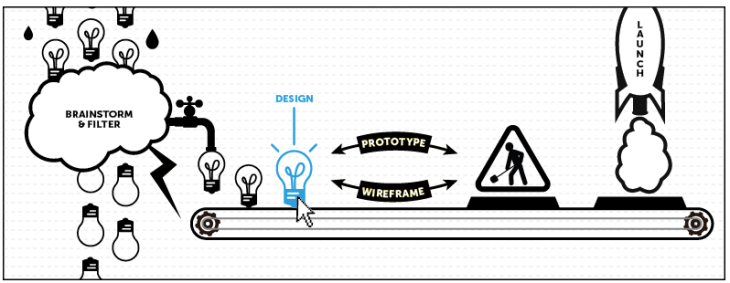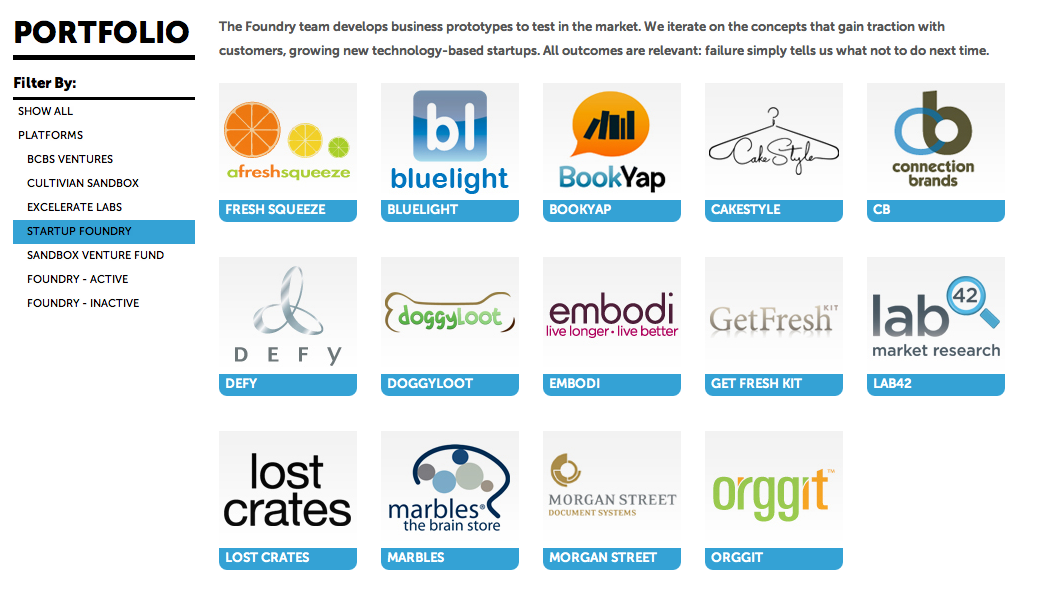Sandbox Industries isn’t easy to describe in a few words. The Chicago-based company has its hands in quite a few pots; it’s both a startup foundry and a venture capital firm focused on building and investing in seed-stage software and consumer tech startups. But, as the founder and primary investor in Excelerate, a summer startup bootcamp program, it’s also an accelerator. Not to mention that it manages a corporate venture fund for Blue Cross Blue Shield to invest in tech-enabled healthcare companies, or that, in partnership with BCBS Venture Partners, it recently launched Healthbox, an accelerator focused on kickstarting healthtech startups.
But ask Sandbox how it defines its company, and it will tell you that it is neither an accelerator, nor a venture fund. That’s because the company is attempting to bring a new approach to the traditional incubator, following the lead of New York-based betaworks, the home of bit.ly, SocialFlow, Chartbeat and more. Betaworks, too, eschews “accelerator” and “venture fund” labels, opting instead to be a hybrid, building and investing in its own companies. Today, Sandbox is announcing that it is bringing the betaworks model to San Francisco, and is in turn refocusing its energy on its startup foundry.
This means that, unlike traditional accelerators which have become trendy of late, Sandbox will look to bring in individual entrepreneurs, not teams of startups, to generate, research, and build ideas internally. Initially, projects will be funded internally by the foundry, and once they hit maturity, the teams will be encouraged to seek funding from outside VCs and angels — with help from Sandbox’s venture funds.
The company has opened a brand new office in SOMA in San Francisco, which will house 10 entrepreneurs by summer, Sandbox Venture Fund Managing Director Millie Tadewaldt tells us. (Tadewaldt will also be lead Sandbox’s operations in San Francisco.) Sandbox will continue focusing on first-time entrepreneurs, who will become “founders-in-residence” in San Francisco, working in tandem with the Sandbox team there and in Chicago to germinate ideas, do market research, talk to customers, and, if things look promising, build a prototype. The entrepreneurs will then have access to Sandbox’s team of developers, writers, designers, and marketers to continue growing and iterating on their idea.
To date, Sandbox has developed a number of startups, including a flash sale site for dog owners, called doggyloot, a social media research firm Lab42, CakeStyle, a subscription personal fashion styling service, and Lost Crates, which delivers crates of designer goods to subscribers. These companies are each, in some way, tied to eCommerce, something that Tadewaldt says is important to Sandbox’s approach.
The team tends to brainstorm multiple ideas within a particular space at once, diving into market research and building prototypes for multiple startups that are developed in tandem. As the companies move forward, their success (or lack thereof) provides validation for particular concepts. And that’s what’s cool about Sandbox’s startup foundry, as Tadewaldt was adamant about the fact that its entrepreneurs have to be comfortable with failure, flexible, and objective. As multiple projects move forward at once, the point is to test the market and be ready to shift resources and attention to those that find validation.
Sandbox’s founders-in-residence get to participate actively in selecting the ideas that the team collectively turns into companies, and receive salaries and equity stakes in the companies they decide to focus on. As long as the failure of a particular company isn’t the result of obvious mistakes made by the entrepreneurs, they can return to Sandbox to start a new company or join another in development.
It’s an interesting model, and one that should benefit from the growing talent pool available in San Francisco. What do you think?
For more on Sandbox, check ’em out at home here.

